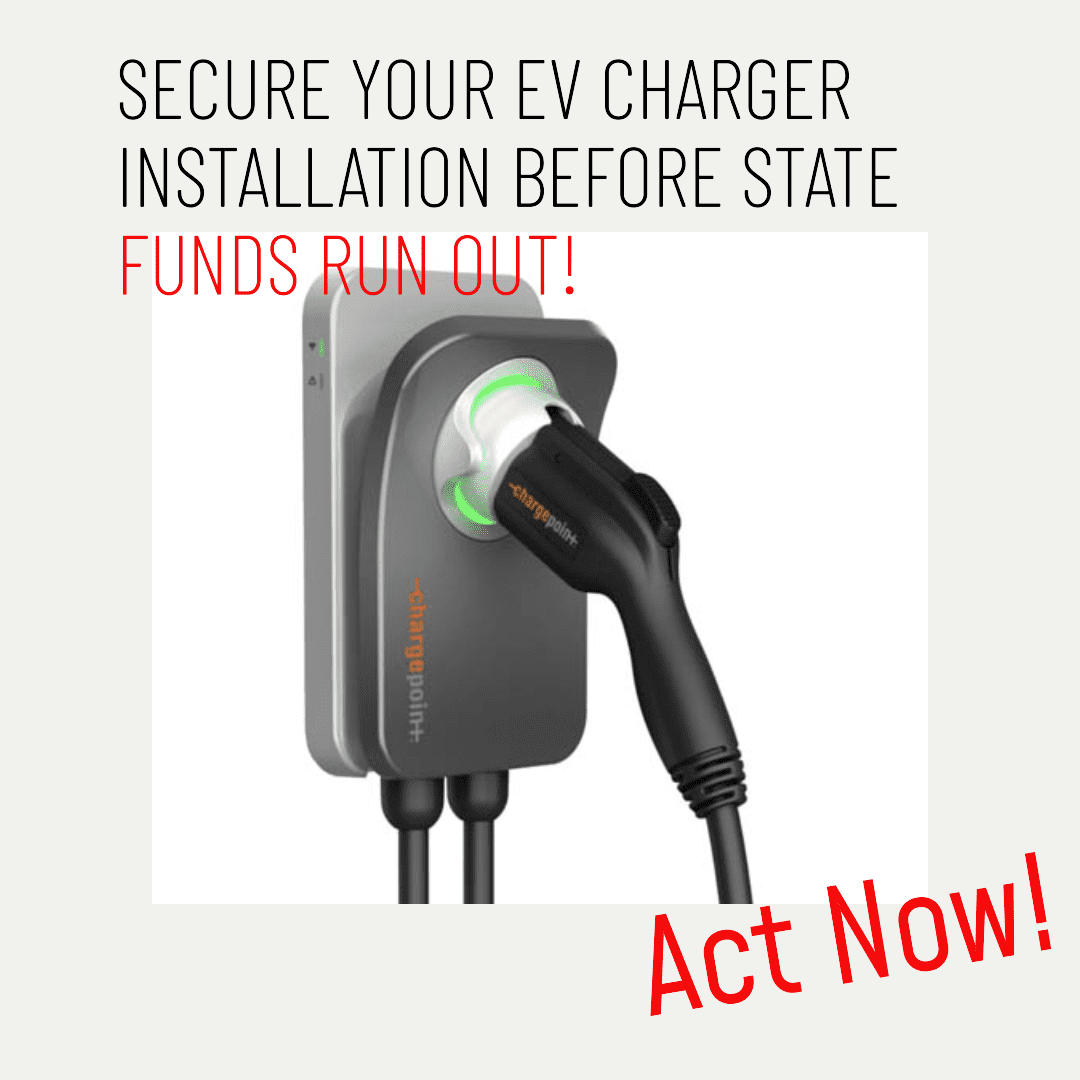Frequently Asked Questions (FAQs) for Level 2 Home EV Chargers
Navigating the world of electric vehicle (EV) charging can feel overwhelming, but we’re here to simplify the process. Our comprehensive EV Charger FAQs address the most common questions about home and commercial charging solutions, including installation, compatibility, costs, and available incentives. Whether you’re new to EVs or upgrading your charging setup, this guide provides the information you need to make confident, informed decisions.
Frequently Asked Questions (FAQs) for Level 2 Home EV Chargers
A Level 2 Home EV Charger is an electric vehicle charging station that operates on a 240-volt power supply, providing faster charging compared to standard household outlets.
These chargers pull electricity from a 240-volt power source, delivering it to the electric vehicle through a dedicated charging unit, enabling quicker charging times.
Yes, professional installation is recommended to ensure safety and compliance with local electrical codes. This often involves hiring a licensed electrician.
Charging times vary based on the vehicle's battery capacity, but Level 2 Chargers typically offer faster charging than standard outlets, providing a full charge in a matter of hours.
In most cases, Level 2 Chargers are compatible with a wide range of electric vehicles. However, it's essential to check compatibility with your specific vehicle model.
Level 2 Chargers offer faster charging times, convenience, and are well-suited for daily charging needs. They are ideal for homeowners looking to efficiently charge their electric vehicles at home.
While some chargers come with DIY installation options, it is recommended to hire a licensed electrician to ensure proper installation and compliance with safety standards.
Depending on your existing electrical setup, your home may need upgrades to support the increased power demand of a Level 2 Charger. A professional assessment is recommended.
Generally, Level 2 Chargers are stationary installations. If you plan to move, it's advisable to consult with a professional to assess the feasibility of relocating the charging station.
Yes, there are federal, state and utility incentives available to encourage the installation of Level 2 Home EV Chargers.
Instead of upgrading the entire electrical panel (which can be expensive), a special device watches how much electricity the house is using overall. If too much power is being used (for example, when the dryer or oven is on), the EV charger will automatically lower its charging speed or pause to avoid overloading the system.
When the house isn’t using much electricity, the charger can go back to charging at full speed.
The benefit:
-
You don’t have to upgrade your panel
-
You can still charge your car safely
-
It’s a smart, cost-effective solution
This setup is perfect for homes with limited electrical capacity and is a great way to install an EV charger without sharing it with or shutting off power to a specific large appliance.
Check out this Video to see a load manager in action: https://youtu.be/QoLqQ9iPxYA?si=czU5mFN9DTwMNwA1
FAQs for Commercial EV Chargers
At its most basic, a commercial EV charger pulls an electrical current from either a 240v outlet or the grid it's hardwired to and delivers that electricity to the vehicle, similar to any other appliance or device plugged into the wall.
The choice depends on factors related to your business and goals. Level 2 chargers (240-volt) are ideal for workplaces, destinations, and multi-unit developments, while Direct Current Fast Chargers (DCFC) (480-volt) are suitable for highway, near-highway, and dense urban locations.
Project timelines vary based on factors like utility service requirements, equipment availability, permitting approvals, and more. Timelines can range from a few months to over a year.
- Service and Maintenance Fees: Charging infrastructure companies earn revenue through regular maintenance and repair services.
- Subscription Fees: Offering different subscription plans to customers generates additional income.
Yes, owning an EV charging station is a lucrative business opportunity. While charging itself may not yield significant profits, it can attract foot traffic to your store, presenting additional selling opportunities.
Small businesses are installing electric vehicle (EV) charging stations for several reasons:
-
Attracting Customers: Offering EV charging stations can attract eco-conscious customers and businesses looking for sustainable options, increasing foot traffic and customer loyalty.
-
Enhanced Branding: Installing EV charging stations aligns with sustainability efforts and enhances a business’s reputation as an environmentally responsible entity.
-
Government Incentives: Small businesses can benefit from federal, state, and utility incentives and rebates, which can offset installation costs, making it more affordable.
-
Cost Savings: EV charging stations can lead to increased energy efficiency and potential cost savings on electricity, especially with off-peak charging incentives.
-
Competitive Advantage: Providing EV charging services can set small businesses apart from competitors and support long-term growth in a rapidly evolving market.
As EVs gain popularity, installing charging stations can offer an additional revenue stream, increased foot traffic, and access to a new customer base.
There's no one-size-fits-all answer, and income varies based on location and other factors. Generally, EVSE owners can make anywhere from a few hundred to several thousand dollars a month.
Potential drawbacks include inadequate maintenance, safety concerns, and risks of vandalism or theft, varying by location.
Depending on make, model, and usage frequency, an EV charging station may last anywhere from 5 to 15 years, after which replacement may be necessary.
Professional EV Charger Installation for New Jersey Homeowners and Small Businesses
Founded in 2010, Green Sun Energy Services, LLC proudly installs EV Chargers in Monmouth, Ocean, Middlesex, Somerset, Mercer, and Union counties. We provide affordable, high-quality EV charger installations, offering flexible financing, expert craftsmanship, premium products, rebate assistance, and top-rated warranties.


